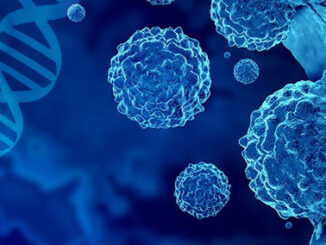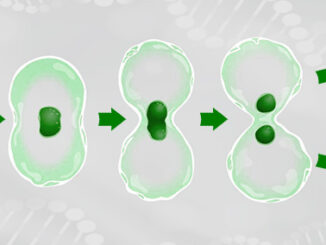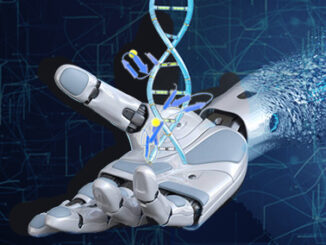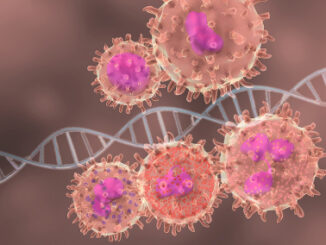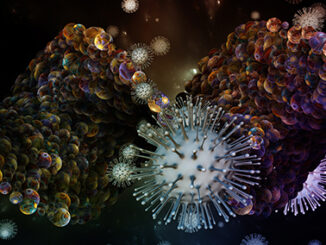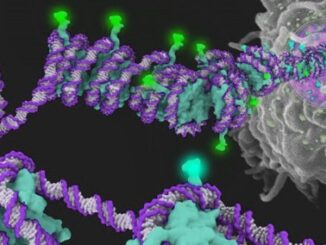Articles that explore the connection between epigenetics and diseases and disorders, including cancer, cardiovascular disease, diabetes, autoimmune disease, and more.
All cancerous tumors exhibit these reversible epigenetic changes that could represent novel reprogrammable targets to address drug resistance (1). Recent research published in Communications Biology provides essential information about the specific epigenetic alterations that may be responsible for chemotherapy resistance (2). Drug Resistance in Cancer More than 90% of the mortality caused by cancer can be linked to drug resistance (3). The molecular mechanisms mediating drug resistance in cancerous cells include increased function of enzymes that render drugs ineffective, mutations [more…]
Researchers in the UK have discovered a new way to assess the risk of developing type 2 diabetes years before any symptoms appear. By analyzing changes found in the DNA of a person’s blood, scientists can now provide a more accurate prediction of the likelihood of developing this condition. This breakthrough has the potential to improve early detection and enable the implementation of preventive measures, ultimately reducing the economic and health burdens associated with type 2 diabetes. So, how does [more…]
For years, scientists have been trying to understand how a particular histone modification called H3K4me3 affects gene expression. Although it is known to play a role in activating genes, its precise function has been difficult to determine due to the presence of other similar proteins within the cell that have overlapping functions. Recently, however, the elusive function of H3K4me3 has finally been revealed. According to an article published in the journal Nature, this histone modification acts as a signaling system [more…]
For many people undergoing cancer treatment, chemotherapy is their best hope for recovery or remission. However, chemo may not always be effective enough, and combining it with other drugs or therapies can sometimes lead to serious side effects. Therefore, finding a safer alternative approach is necessary, especially for cancers that require aggressive treatment or fail to respond to traditional chemo. In this pursuit, many researchers are exploring the potential of phytochemicals as alternative cancer treatments. One such promising compound is [more…]
From the time we are born, the cells in our bodies are constantly replicating – creating and repairing the tissues of our organs, skin, bones, and more. This process, which splits one cell into two identical daughter cells, is called mitosis, and it allows the body to grow and heal over a lifetime. For the most part, our cells are very efficient at dividing. But as we age, impairment can occur, and the information once provided by the mother cell [more…]
Gene editing and artificial intelligence (AI) are two powerful discoveries that have the potential to revolutionize disease treatment. While gene editing can correct genetic defects, AI can analyze data better for improved decision-making. Using these technologies together would no doubt improve patient outcomes and potentially cure diseases. Now a new AI program from the Grossman School of Medicine at NYU Langone-Health and the University of Toronto is taking an older gene editing technology and improving it to enhance and expedite [more…]
Keeping the body healthy – that’s the immune system’s job. And a healthy immune system allows our body to defend against invading disease-causing microorganisms like viruses, parasites, and bacteria. One remarkable component of the immune system response is hematopoiesis, the process by which immune cells are produced in the bone marrow. During an infection, the hematopoietic system kicks into high gear, replenishing the immune cells that are quickly being consumed. Like a “state of emergency” for the body, this system [more…]
Severe acute respiratory syndrome coronavirus 2 (SARS-CoV-2) was first recognized at the beginning of 2020 and is responsible for the ongoing COVID-19 pandemic. The persistence of the virus has been partly accredited to its effective suppression of host cell responses. As such, continued research in elucidating the dynamics of the SARS-CoV-2 life cycle is essential to facilitate the design and development of novel diagnostics and suitable therapies. Although reports suggest that SARS-CoV-2 can dysregulate the host’s gene expression and innate [more…]
Cancer that occurs in the prostate is one of the most common cancers found in men globally. It is also clinically one of the most varied, with a subgroup of patients that advance more quickly to metastasis. Unfortunately, many diagnostic measures used today are not capable of predicting prostate cancer’s (PC) progression. Because epigenetic modifications are usually found early in tumor development, researchers have become more interested in studying these changes to find biomarkers for the disease. In a recent [more…]
DNA exists within every cell in the body, but it’s packaged differently in each cell type or tissue. The bundled-up DNA is called chromatin, and its configuration helps regulate gene expression. It does this by allowing transcription to take place along specific DNA regions as needed during its lifecycle. Thus, cells must be able to control chromatin’s structure and remodeling capabilities to function correctly. However, disruptions in a cell’s microenvironment, as in disease, can upset the mechanisms that control chromatin. [more…]


